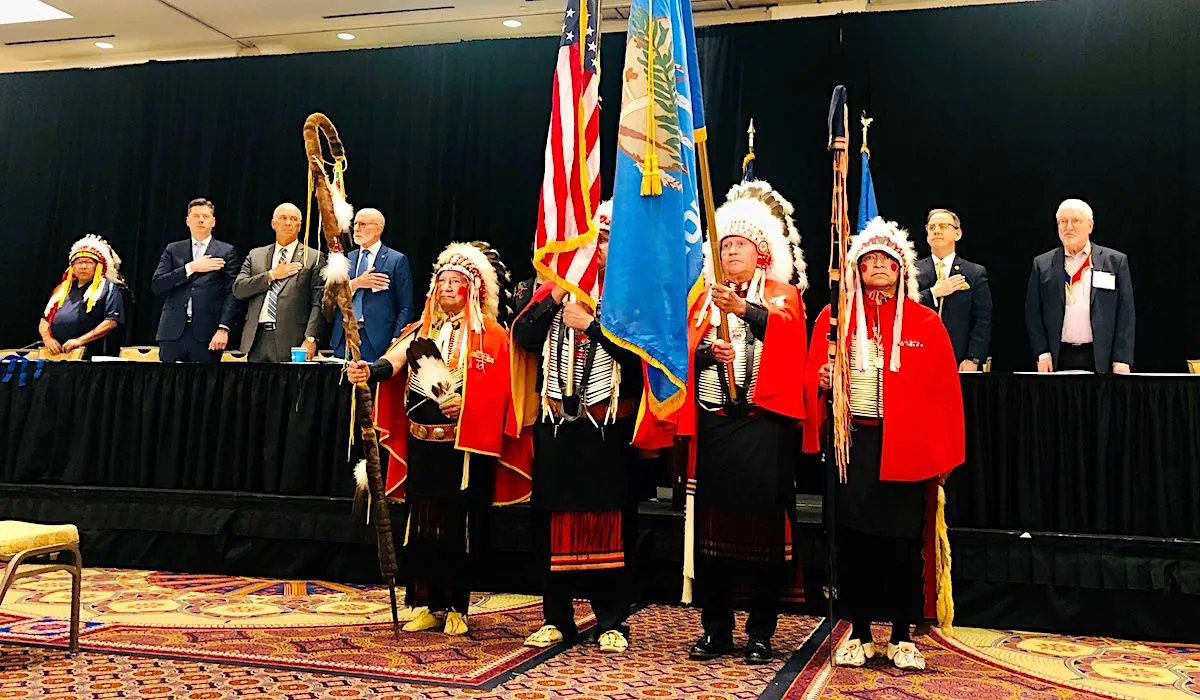Native Land Rights: A Journey Through Law and History
Rebecca Nagle's book explores landmark Supreme Court cases and centuries of Native American struggles for land rights, offering a comprehensive look at the complex legal and historical landscape.

Rebecca Nagle's book "By the Fire We Carry: The Generations-Long Fight for Justice on Native Land" provides a comprehensive examination of Native American land rights, focusing on recent Supreme Court cases and their historical context. The work, published six years after Nagle began following the Sharp v. Murphy case, offers readers a deep dive into the complex legal and historical landscape of Native American sovereignty.
The book centers around the 2020 Supreme Court ruling that resulted in the restoration of approximately 19 million acres of land in Oklahoma to five Native nations: the Muscogee, Choctaw, Chickasaw, Seminole, and Cherokee. This decision marked a significant milestone in the ongoing struggle for Native American rights and justice.
Nagle meticulously explains the intricacies of legal concepts related to Native American land ownership and jurisdiction. For instance, she clarifies that the term "reservation" is not merely a casual phrase but a legal designation with profound implications. The author writes, "Before the United States was a country, the land from sea to shining sea belonged to hundreds of Indigenous nations. When they ceded land to the United States through treaties, any land that was not ceded was 'reserved' for the tribes."

The book alternates between discussing recent legal cases and providing historical background on Native American relations with the U.S. government. This structure allows readers to understand the long-standing nature of these issues and how they continue to impact Native communities today.
One of the most compelling aspects of Nagle's work is her ability to humanize complex legal battles. She recounts the story of Patrick Murphy, a Muscogee man convicted of murder in 2000, whose case became pivotal in the fight for tribal jurisdiction. Nagle also shares the infuriating tale of Millie Naharkey, a Muscogee woman whose inherited estate was systematically plundered by those assigned to manage it.
The author doesn't shy away from addressing historical injustices, such as the Indian Removal Act of 1830, which led to the forced relocation of Native American nations to present-day Oklahoma. Nagle challenges the notion that these actions were acceptable by contemporary standards, citing activists from 1830 who argued that the "pillars" of democracy would "dissolve" due to such policies.
"It is not possible to judge removal more harshly than the activists of 1830 did. After the bill passed, they argued the 'pillars' of democracy would 'dissolve' and that God would punish our country for our sins. The United States would no longer be a beacon of democracy in the world."
Nagle's book is thoroughly researched, with extensive endnotes providing sources for every fact, claim, and narrative. This meticulous approach lends credibility to her work and allows readers to delve deeper into the subject matter if they choose.
"By the Fire We Carry" serves as an important contribution to the ongoing discourse on Native American rights and sovereignty. By weaving together legal analysis, historical context, and personal stories, Nagle has created a compelling narrative that illuminates the complex and often overlooked struggles of Native American communities in their fight for justice and recognition.


































